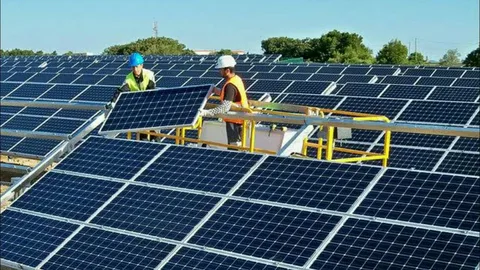Business industrial
Franchise Success Secrets: The Top 10 Things You Need to Look For Before Investing.

Introduction
Are you thinking of investing in a franchise, but not sure where to start? Franchising can be an excellent opportunity for entrepreneurs who want to own their own business while benefiting from the support and resources of an established brand. However, with so many options out there, it can be overwhelming to figure out which franchise is right for you. That’s why we’ve put together this list of the top 10 things you need to consider before making a decision. Whether you’re new to franchising or have some experience under your belt, these tips will help set you on the path towards franchise success!
What is a Franchise?
A franchise is a business model that allows individuals to own and operate their own businesses using the established brand, products, and services of an existing company. In exchange for this privilege, franchisees must pay initial fees and ongoing royalties to the franchisor.
One of the main benefits of owning a franchise is having access to a proven system with a track record of success. Franchisees can also benefit from extensive training and support provided by the franchisor.
Franchises come in many different shapes and sizes, ranging from fast-food restaurants to fitness centers to home-based businesses. Some franchises require significant upfront investment while others can be started with relatively low capital requirements.
When investing in a franchise, it’s important for potential buyers to conduct thorough research into the industry, market demand for the product or service being offered, as well as the reputation and financial stability of the franchisor. By doing so, investors can increase their chances of success in this highly competitive marketplace.
The Top 10 Things to Consider Before Investing in a Franchise
When considering investing in a franchise, it’s important to do your research and make an informed decision. Here are the top 10 things you should consider before making any commitments.
1. Franchise Costs
Understand what costs will be involved with purchasing or starting up a franchise, including initial fees, ongoing royalties, marketing expenses and more.
2. Financial Stability
Ensure that the franchisor is financially stable and has a proven track record of success. Research their financial standing as well as their history in the industry.
3. Support Systems
Investigate what kind of support systems the franchisor provides to its franchisees – such as training programs, marketing assistance, operational guidance and ongoing support.
4. Business Model
Consider whether the business model aligns with your personal strengths and interests, ensuring that you’ll be passionate about running this type of business for years to come.
5. Territory Restrictions
Be aware of any territorial restrictions on where you can operate your franchise – ensure there’s enough potential customers within your territory.
6. Brand Reputation
Research online reviews from current and former franchisees to gauge customer satisfaction levels along with how reputable they are overall in their respective field.
7 . Litigation History
Check if there have been lawsuits against them or any other legal issues that could potentially harm your investment; it would be best to avoid these franchises altogether
8 . Industry Trends
Keep updated on changes happening across different industries because If consumer preferences change during economic downturns then so too might demand for specific types of goods/services offered by certain franchises
9 . Exit Strategy
Plan ahead on how you’ll exit from owning this franchise if ever necessary- selling price? When?
10 . Your Personality Type & Lifestyle Considerations
Determine whether owning a particular franchise fits into one’s desired lifestyle; also evaluating if personality traits align which are required for successful ownership (i.e., attention-to-detail)
The Pros and Cons of Franchising
Franchising is a popular way for entrepreneurs to start their own business with the support of an established brand. However, there are both pros and cons to this model that potential franchisees should consider before investing.
One advantage of franchising is the lower risk involved compared to starting a business from scratch. A well-established franchise has already proven its success, making it less risky than creating a new concept. Additionally, franchises often come with training and ongoing support from the corporate team.
On the other hand, one downside of franchising is the lack of creative control over your business. Franchisees must follow strict guidelines set by the franchisor in terms of branding, marketing and operations. This can limit your ability to make unique decisions that might benefit your individual market or location.
Another potential disadvantage is the high initial investment required for some franchises. While certain franchises may offer financing options or assistance finding funding sources, many require significant upfront costs that could be difficult for some entrepreneurs to afford.
Ultimately, whether or not franchising is right for you depends on your individual goals and preferences as a business owner. It’s important to carefully weigh both sides before making any decision about investing in a franchise opportunity.
How to Choose the Right Franchise
Choosing the right franchise can be a daunting task, but it doesn’t have to be. Here are some tips on how to choose the right franchise for you.
1. Do your research: Look at various franchises and compare their business models, support systems, and investment requirements.
2. Consider your interests: Choose a franchise that aligns with your passions and interests. This will not only make work more enjoyable but also increase your chances of success.
3. Evaluate profitability: Analyze the financial performance of each franchise by looking at revenue streams, operating costs, and profit margins.
4. Check out the competition: Assess who else is offering similar products or services in the area you plan to operate in.
5. Talk to other franchisees: Reach out to existing franchisees within each system you’re considering and ask about their experiences, challenges they faced while starting up etc..
6. Understand franchisor’s expectations – Review all details provided by Franchisors before signing any agreement or contract
By following these tips when choosing a franchise opportunity that’s right for you, you can mitigate risk and maximize potential rewards as an entrepreneur in this competitive space!
Conclusion
Investing in a franchise can be a great way to start your own business with the support of an established brand. However, it’s important to do your research and consider all aspects before making a decision. Remember to evaluate the franchisor’s track record, their financial requirements and support systems, as well as the potential for growth within the industry.
Additionally, don’t forget to weigh the pros and cons of franchising against other options such as starting your own independent business or buying an existing one. By carefully considering these factors and doing your due diligence, you’ll be better equipped to make informed decisions about whether or not franchising is right for you.
Keep in mind that success in any venture requires hard work, dedication and perseverance. With the right attitude and approach combined with thorough research into potential franchises opportunities out there available today you too can find yourself on a path towards franchise success!
Business industrial
Fire Risk Assessment London: Legal Compliance for Landlords

A Fire Risk Assessment London is a fundamental legal requirement for landlords, property managers, and business owners responsible for buildings that contain shared or non-domestic areas. It is designed to identify potential fire hazards, assess the level of risk to occupants, and ensure appropriate fire safety measures are in place to protect lives and property.
In a city like London, where buildings vary widely in age, layout, and occupancy, carrying out a suitable and sufficient fire risk assessment is not just a legal formality—it is a critical responsibility.

Understanding Fire Risk Assessment in London
A fire risk assessment is a systematic inspection of a property to evaluate fire hazards and determine whether existing safety controls are adequate. The process considers how a fire could start, how it could spread, and how occupants would escape in an emergency.
Under the Regulatory Reform (Fire Safety) Order 2005, the duty to carry out a fire risk assessment falls on the “Responsible Person.” This is typically the landlord, building owner, managing agent or employer who oversees the property.
A valid Fire Risk Assessment London applies to:
-
Blocks of flats and apartment buildings (communal areas)
-
Houses in Multiple Occupation (HMOs)
-
Commercial properties and offices
-
Retail units and hospitality venues
-
Care homes, schools, and mixed-use buildings
Failing to comply can lead to enforcement notices, significant fines, or legal action.
Why Fire Risk Assessment Is Crucial for Landlords
For landlords, fire safety compliance is not optional. A professional fire risk assessment demonstrates that reasonable steps have been taken to protect tenants and visitors from fire hazards. It also supports broader legal obligations related to property management and tenant safety.
A compliant assessment plays an important role in achieving and maintaining a valid Landlord Safety Certificate London, which demonstrates that a property meets essential safety standards. This is particularly important for landlords managing rental properties, HMOs, or portfolios with shared spaces.
By keeping fire risk assessments up to date, landlords can:
-
Reduce the risk of fire incidents
-
Protect tenants and occupants
-
Meet legal and insurance requirements
-
Avoid penalties and enforcement action
-
Improve overall building safety management
What a Professional Fire Risk Assessment Covers
A comprehensive Fire Risk Assessment London goes beyond a simple checklist. It involves a detailed evaluation of both active and passive fire safety measures within the building.
Key areas assessed include:
-
Identification of fire hazards and ignition sources
-
Assessment of combustible materials and fire load
-
Condition and suitability of escape routes
-
Fire doors, compartmentation, and passive fire protection
-
Fire alarm and detection systems
-
Emergency lighting and fire signage
-
Firefighting equipment such as extinguishers
-
Risk to occupants, including vulnerable individuals
-
Fire safety management procedures and documentation
The assessment concludes with a clear action plan, prioritizing necessary improvements and providing practical recommendations to reduce risk.
Frequency and Review of Fire Risk Assessments
Fire risk assessments are not one-off documents. They must be reviewed regularly and updated whenever significant changes occur. This encompasses modifications to the structure, shifts in occupancy, or enhancements to fire safety procedures.
Landlords and property managers should also review assessments following:
-
Fire incidents or near misses
-
Structural modifications
-
Changes in use of the building
-
Updates to fire safety legislation
Maintaining an up-to-date Fire Risk Assessment London is essential for ongoing compliance and effective risk management.
Fire Risk Assessment and Legal Compliance
Fire safety law in the UK places a strong emphasis on prevention and risk management. Enforcement authorities expect fire risk assessments to be suitable, sufficient, and carried out by a competent person.
A professionally conducted assessment provides documented evidence of compliance and can be requested during inspections by fire authorities, insurers, or local councils. For landlords, this documentation is often required as part of wider compliance checks associated with a Landlord Safety Certificate London.
Choosing a Professional Fire Risk Assessment Provider
Competency is a key requirement when appointing a fire risk assessor. The assessor must have appropriate knowledge, training, and experience to identify risks accurately and provide reliable recommendations.
Safety Spectrum London provides professional fire risk assessment services designed to meet legal requirements and support long-term fire safety management. Their assessments are tailored to the specific risks associated with each property type.
To learn more about professional services, visit their dedicated page for Fire Risk Assessment London:
Benefits of a Professional Fire Risk Assessment
Engaging a competent provider ensures:
-
Accurate identification of fire hazards
-
Practical, prioritized recommendations
-
Clear and compliant reporting
-
Reduced risk of enforcement action
-
Improved safety for occupants and visitors
-
Support for landlord and property compliance obligations
A well-managed fire risk assessment strategy protects both people and property while demonstrating responsible ownership and management.
Final Thoughts
A Fire Risk Assessment London is a legal necessity and a vital part of responsible property management. For landlords, it plays a central role in meeting safety obligations and maintaining a compliant Landlord Safety Certificate London.
By ensuring assessments are carried out professionally, reviewed regularly, and acted upon appropriately, landlords and property owners can create safer environments, meet regulatory requirements, and protect their investments in the long term.
Business industrial
Transform Your Energy: Best Solar Panel Installation in Melbourne

As electricity prices continue to rise in Victoria, many homeowners and businesses are turning to solar energy as a practical solution to reduce their bills and secure long-term savings. The key to effectively benefiting from solar power lies not just in the decision to install solar panels, but in choosing the right installer.
A well-designed and correctly installed solar system can significantly outperform a poorly executed one, making it costly to rectify any issues later on. This is where Electrical Masters comes in, offering professional solar panel installation you can trust in Melbourne.
Why Choosing the Right Solar Panel Installer Matters
Selecting the best solar panel installation service in Melbourne is crucial not just for acquiring panels, but for securing an efficient system that will perform reliably for decades. A quality installation can lead to higher energy generation, enhanced safety, and the maintenance of valuable warranties. Conversely, cheap or hasty installations may result in diminished output, safety hazards, and elevated maintenance costs.
At Electrical Masters, every project reflects a commitment to precision and quality. Their team of qualified electricians knows how to integrate solar systems safely with existing electrical setups, ensuring that everything operates smoothly and complies with local regulations.

Electrical Masters: Experts in Solar Panel Installation
Electrical Masters has built a solid reputation in Melbourne for delivering reliable solar solutions backed by extensive electrical expertise. Unlike some companies that focus mainly on sales, Electrical Masters prioritizes technical skill throughout the installation process. Their electricians manage every project phase, from initial design to final testing, ensuring the highest standard of workmanship.
Customers seeking the best solar panel installation in Melbourne choose Electrical Masters for several reasons, including their commitment to transparent pricing, honest advice, and emphasis on long-term performance. This focus on quality has earned them a loyal customer base across Melbourne’s diverse suburbs.
Tailored System Design for Maximum Performance
Every home and business has specific energy requirements, which is why customized system design is integral to successful solar panel installation. Electrical Masters begins with a thorough assessment of roof orientation, shading, and individual energy usage patterns. This detailed analysis informs the creation of a solar system optimized for maximum output throughout the day.
By strategically positioning panels and selecting the appropriate inverter size, Electrical Masters ensures customers receive a system that precisely meets their energy demands. This tailored approach not only boosts performance but also leads to significant cost savings, allowing you to enjoy the full range of benefits from your solar investment.
High-Quality Equipment for Reliable Performance
Using premium equipment is vital for achieving long-lasting solar panel installations. Electrical Masters sources high-efficiency solar panels and inverters renowned for their durability and reliability. Given Melbourne’s variable weather conditions, opting for trusted components guarantees consistent performance year-round.
Investing in high-quality gear also means stronger manufacturer warranties and reduced maintenance requirements. Customers can enjoy peace of mind, knowing their systems will continue delivering clean energy for many years. By combining top-notch products with professional installation, Electrical Masters stands out as a leader in solar panel installations in Melbourne.
Financial Savings with Solar Energy
One of the main incentives for homeowners and businesses seeking solar panel installations in Melbourne is the potential for substantial cost savings. With various rebates and feed-in tariffs available through the Victorian government, solar has become more affordable than ever. Electrical Masters assists with guidance on qualifying for these rebates and helps navigate the necessary paperwork to ensure clients receive maximum financial benefits.
Many customers find that they recover their initial investment within a few years due to reduced electricity bills. This results in thousands of dollars saved throughout the system’s lifespan. By choosing Electrical Masters, you can turn sunlight into significant long-term financial savings.
Comprehensive Solutions for Homes and Businesses
Electrical Masters provides exceptional solar panel installations for both residential and commercial properties. Homeowners see lower energy bills and gain more control over their energy usage, while businesses benefit from reduced operating expenses and enhanced sustainability.
For commercial enterprises, solar energy represents not only an upgrade but a strategic investment. Electrical Masters designs commercial systems tailored to handle higher energy demands while ensuring efficiency and reliability. Whether for individual homes or large businesses, their solar solutions promise consistent results and lasting returns.
Commitment to Safety and Compliance
Safety is a top priority when it comes to solar panel installation. Electrical Masters adheres to Australian Standards and SAA guidelines during installation to ensure all components meet stringent safety and quality criteria. Poor installation practices can result in electrical hazards, warranty complications, and insurance issues. By choosing Electrical Masters, you ensure your solar system is installed correctly and legally by licensed professionals focused on safety and performance.
A Simple, Streamlined Installation Process
The journey to achieving the best solar panel installation becomes stress-free with Electrical Masters. The process starts with a complimentary assessment and custom system design, followed by professional installation and comprehensive system testing to ensure optimal functionality. After installation, customers receive guidance on how to monitor their systems and maximize energy savings.
Ongoing support is also available, ensuring that the solar system continues to operate efficiently over time. This dedication to customer care has established Electrical Masters as a leading provider of solar panel installations in Melbourne.
Future-Ready Solar Solutions
Electrical Masters designs systems with future upgrades in mind, such as the incorporation of battery storage, electric vehicle chargers, and smart monitoring technology. This forward-thinking approach allows customers to expand their energy systems as their needs evolve.
Planning for future technologies helps protect your investment and prepares you for increased energy independence, making Electrical Masters a smart choice for those seeking solar solutions in Melbourne.
Make the Switch to Solar Today
When it comes to reliable and high-performing solar installations, Electrical Masters strikes the perfect balance between expert installation, superior equipment, and dedicated customer service. With a focus on customized system design, rebate assistance, and long-term support, Electrical Masters ensures every customer maximizes their solar investment.
If you’re ready to reduce your electricity costs and embrace clean, renewable energy, now is the ideal moment to consider solar. Get in touch for a free quote today and discover the benefits of solar panel installation tailored specifically for you.
Business
Right Tarmac Company in Cardiff for Durable Outdoor Surfaces

Choosing the right Tarmac Company Cardiff can make a significant difference when improving outdoor surfaces for homes, businesses, and public areas. Tarmac is one of the most trusted surfacing materials due to its strength, flexibility, and long lifespan. However, these benefits can only be fully achieved when the work is handled by experienced professionals who understand both the material and local conditions.
In a city like Cardiff, outdoor surfaces must cope with regular rainfall, changing temperatures, and frequent use. Poorly installed tarmac may deteriorate quickly, leading to cracks, uneven areas, and drainage problems. A professional company ensures that every stage of the process is completed correctly, resulting in a surface that performs well for many years.

Planning and Site Assessment: The First Step to Success
Every successful tarmac project begins with proper planning. Before any work starts, a professional company carries out a detailed site assessment. This involves evaluating ground conditions, soil stability, access points, and drainage requirements.
Understanding the site is crucial. Uneven or unstable ground can cause long-term issues if not addressed properly. Professional teams identify potential problems early and apply the right solutions to ensure a stable foundation. This careful preparation reduces the risk of future repairs and ensures the surface remains durable.
Drainage planning is also a key part of the assessment. Cardiff’s weather means that water management is essential for outdoor surfaces. Proper gradients and runoff systems help prevent water pooling, which can weaken the tarmac and shorten its lifespan.
The Importance of Strong Base Preparation
The strength of a tarmac surface depends heavily on the quality of its base. A professional tarmac company uses high-grade aggregates and proven compaction methods to create a solid sub-base. This foundation supports the surface and allows it to withstand daily use and heavy loads.
Without proper base preparation, even the best tarmac materials may fail. Issues such as sinking, cracking, or surface movement often result from poor groundwork. Professional installation eliminates these risks by following industry best practices at every stage.
A well-prepared base also improves load distribution. This is particularly important for driveways, access roads, and commercial car parks where vehicles regularly pass over the surface.
Residential Tarmac Services for Cardiff Homes
For homeowners, tarmac surfacing offers a practical and visually appealing solution. Driveways, pathways, and private roads benefit from tarmac’s smooth finish and low maintenance requirements. A professionally installed surface enhances both convenience and curb appeal.
One of the main reasons homeowners choose tarmac is its affordability. It provides excellent value compared to other surfacing materials while still delivering durability and performance. Tarmac driveways can be adapted to suit different property styles, whether modern or traditional.
Safety is another important factor. Smooth, even tarmac surfaces reduce trip hazards and provide better traction for vehicles and pedestrians. This makes them ideal for family homes and properties with regular foot traffic.
A professional company ensures that residential projects are completed efficiently and with minimal disruption. Clear communication and proper scheduling help homeowners enjoy their upgraded outdoor space without unnecessary delays.
Commercial and Industrial Tarmac Solutions
Commercial properties require surfaces that can handle constant use and heavy traffic. Car parks, service roads, loading bays, and forecourts must remain safe, durable, and functional. Professional tarmac companies understand these requirements and deliver solutions designed for demanding environments.
One of the key advantages of tarmac in commercial settings is its strength. When laid correctly, tarmac can support heavy vehicles without developing structural problems. This makes it suitable for industrial estates, retail areas, offices, and public facilities.
Clear markings and organized layouts are essential for commercial spaces. Tarmac provides a smooth base for precise line markings, improving traffic flow and safety. This helps businesses manage parking and vehicle movement more effectively.
Speed of installation is another major benefit. Professional teams work efficiently to minimize disruption to business operations. Large areas can often be completed within tight schedules, allowing businesses to resume normal activities quickly.
Weather Resistance and Long-Term Performance
One of the reasons tarmac is so widely used is its ability to adapt to weather changes. Its flexible nature allows it to expand and contract with temperature fluctuations, reducing the risk of cracking.
In Cardiff’s climate, resistance to moisture is especially important. Proper installation ensures effective drainage, preventing water from weakening the surface or base layers. This significantly extends the lifespan of the tarmac.
Regular maintenance further enhances long-term performance. Simple practices such as cleaning debris, repairing minor cracks early, and resealing when necessary help keep the surface in excellent condition. Professional companies often provide guidance on how to maintain the surface effectively.
Enhancing Appearance and Property Value
A professionally laid tarmac surface creates a clean, tidy, and professional appearance. Whether it is a residential driveway or a commercial car park, a smooth finish improves the overall look of the property.
First impressions play a major role in property value. For homeowners, a well-maintained driveway can make a property more attractive to potential buyers. For businesses, a neat external area reflects professionalism and attention to detail.
Tarmac’s simple and uniform appearance complements a wide range of property styles. Optional features such as edging or contrasting borders can add visual interest while maintaining a practical design.
Cost Efficiency and Practical Benefits
Tarmac is known for its cost-effectiveness. The initial installation cost is often lower than alternative materials, and its durability keeps long-term expenses minimal. Repairs are generally straightforward and affordable when compared to other surfacing options.
Professional installation ensures that the surface performs well over time, reducing the need for frequent maintenance. This makes tarmac a smart investment for both short-term improvements and long-term value.
The combination of affordability, durability, and ease of maintenance makes tarmac one of the most practical surfacing solutions available in Cardiff.
Sustainability and Modern Tarmac Practices
Modern tarmac solutions often incorporate recycled materials, making them an environmentally responsible choice. Many professional companies focus on sustainable practices without compromising on quality.
Tarmac can also be recycled at the end of its lifespan, reducing waste and supporting environmentally friendly construction methods. Choosing a company that values sustainability contributes to responsible development within the community.
Why Professional Experience Matters
Experience and expertise are what set professional tarmac companies apart. Skilled teams understand local conditions, industry standards, and best practices. This knowledge ensures that every project is completed safely and to a high standard.
Professional companies also prioritize clear communication. From initial consultation to project completion, they provide honest advice, realistic timelines, and reliable service. This builds trust and ensures client satisfaction.
Conclusion
Working with a trusted Tarmac Company Cardiff is essential for achieving durable, safe, and visually appealing outdoor surfaces. Whether for residential driveways or large commercial projects, professional installation ensures long-lasting performance and value.
From detailed planning and strong base preparation to high-quality finishing and maintenance advice, a professional tarmac company delivers results that stand the test of time. Investing in expert tarmac surfacing is a practical decision that enhances functionality, appearance, and long-term reliability for properties across Cardiff.
-
Business3 years ago
Cybersecurity Consulting Company SequelNet Provides Critical IT Support Services to Medical Billing Firm, Medical Optimum
-
Business3 years ago
Team Communication Software Transforms Operations at Finance Innovate
-
Business3 years ago
Project Management Tool Transforms Long Island Business
-
Business2 years ago
How Alleviate Poverty Utilized IPPBX’s All-in-One Solution to Transform Lives in New York City
-
health3 years ago
Breast Cancer: The Imperative Role of Mammograms in Screening and Early Detection
-
Sports3 years ago
Unstoppable Collaboration: D.C.’s Citi Open and Silicon Valley Classic Unite to Propel Women’s Tennis to New Heights
-
Art /Entertainment3 years ago
Embracing Renewal: Sizdabedar Celebrations Unite Iranians in New York’s Eisenhower Park
-
Finance3 years ago
The Benefits of Starting a Side Hustle for Financial Freedom






























